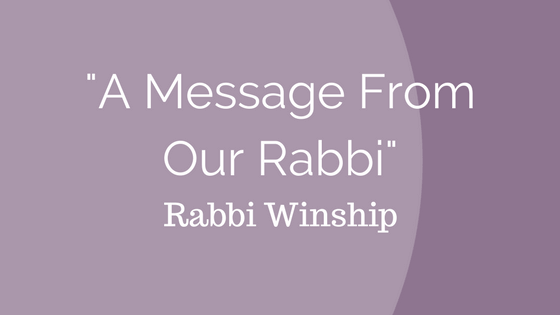Dear TBD Community, I’m sure many of you have had the privilege of hearing the following joke more than once in your lives:
Once there was a religious man who was out to sea fishing, when, all of a sudden, a wave came and flipped his boat and destroyed it. His boat having been smashed to pieces, our friend finds a wooden board to cling to. He is not worried, rather he remains calm, faithful in his God who will surely save him. A few hours after he’d been thrown into the water, a cruise ship comes by, sees him stranded, and offers to rescue him. The man responds, “No worries, God will save me!” and shoos them away. A few hours later, a helicopter flies by, spots the man, hovers, and calls out to him. Again, he shoos them away, confident that God will save him. Lastly, a fishing boat happens by the man, tries to save him, and like the others is refused, told that, “My God will save me.” Needless to say, after a good long while in the water, clinging to this board, our friend slips away and is lost to the sea. Upon entering heaven, our friend has a bone to pick. He turns to God and demands to know why he was not saved. Had he not been a good religious man? Had he not had faith in his Saviour? God retorts, “I DID TRY TO SAVE YOU. I SENT YOU A BOAT, A HELICOPTER, AND EVEN ANOTHER BOAT!”
Whether you believe in God or not, believe in capital “G” Good or not, one thing is clear: we are a religion that believes not in waiting for Divine providence, but rather in giving and receiving help where and when we can. One need look no further than our current place in the texts, here at the end of Genesis and the beginning of Exodus, to see that whether in the story of Joseph and our descent down into Egypt or in the story of slavery and our Exodus through the hands of Moses, that our God prefers that we receive our help through human intermediaries and not directly from the Divine. Could the God of the Bible have provided for the children of Jacob during the famine in Israel? Certainly; this is the same God that caused manna to rain down in the desert. Could God have redeemed us from Egypt without Moses, solely through God’s outstretched hand? Certainly! Whether Joseph or Moses, though, God (or the force of Good) seems apt to act through us, not just directly for us.
Let’s consider one of the most famous examples of the Divine’s desire for human action: the splitting of the sea. In this week’s portion, B’Shalach, the Jews have finally been freed from Egypt after a devastating set of plagues. As they hurriedly gather together their things and head out of Egypt, they come to a place known as, “The Mouth of Freedom,” (Pei Cheirut) a place which, according to the midrash, was the geographical mark of freedom. We are told that by Egyptian law, any slave who runs away and makes it to this place is considered to be a free person. Here the Israelites encamp, right next to the sea, and then lo and behold, Pharoah changes his mind and sends his army of chariots after them, to return them to slavery. What are the people to do? They have been taken out of Egypt by God’s mighty hand, through many miraculous wonders and deeds. Their leader, Moses, does as you might expect most of them to do, he stands on a rock and prays to God.
There is another man, though, not quite as famous, that instead of praying, get’s moving. We are told that Nachshon ben Aminadav (Aaron’s brother-in-law) starts to walk into the water. First up to his shins, then up to his knees, then up to his hips, then further up to his chest. He doesn’t stop though, but rather continues, up to his neck, then his chin, and finally, all the way up to his nose. We are told in the midrash, that God turns to Moses at this point and rebukes him, “STOP PRAYING AND DO SOMETHING! Be like Nachshon, and instead of waiting for Me to help, get moving and start helping yourselves!” You could not ask for a point in our Bible where God is more physically present and in your face. God has just unleashed the ten plagues in Egypt, God travels with the newly freed slaves as a pillar of cloud by day and as a pillar of fire by night. God is very much present physically and, one imagines, it would have been easy for this God to split the sea by God’s hand alone. And yet, God demands that we not turn to God, but rather that we do, that we must act in order to survive, in order to progress.
At this same point in the story, the people of Israel are faced with another issue, that of brackish water. They call out, and in response, God shows Moses a certain tree that he should throw into the water. Moses tosses in a branch, and lo and behold, the water turns sweet. Certainly God could have just sweetened the water, so, what’s going on? Why does God show Moses the tree and make him throw in the branch? The 19th century rabbi, the Netziv, offers some explanation for us:
On the words: And God showed him a tree. According to the simple meaning of this verse, there was already in existence in the place of the bitter waters a tree to sweeten them. Like in all of nature, when a place lacks a certain thing that is necessary for life, than there is in that place some other thing that serves to complete the lack. So too, in this place there grew a type of tree that would sweeten the waters, and Moses simply didn’t know about it.
It is the way of the world, according to the Netziv, that when there is a lack, a problem, there is also something that has been created to help, to solve the problem. God showed Moses the solution, but still it is Moses who must throw the branch into the water.
If you look in the indices of our great books, you might be surprised to find that our great encyclopedias of Jewish knowledge do not contain a section on help. We, as the Jews, do not often talk about help. Instead, our books talk about fixing the world, Tikkun Olam, and about justice, Tzedakah. It is overwhelming to think that we do not have lessons on how to help, but rather, speak only of how to fix the world, only of how to bring about justice. As Jews, we are charged not just to help, but to search for the solution, to be partners with the Divine in order to bring miracles into reality. In the words of my father-in-law, “Sometimes, as Jews, we have to help our luck along.” Our stories show us a Divine and a religion that are willing to offer salvation, not as our Saviours, but as those that furnish us the tools to mend the world ourselves.
As the Netziv taught us, wherever there is a need, something else has been created to fill that need. We must find who it is that fills our deficiencies, and look for the tools and the people whose needs we can fill. It is through these actions that we bring Good into the world.

